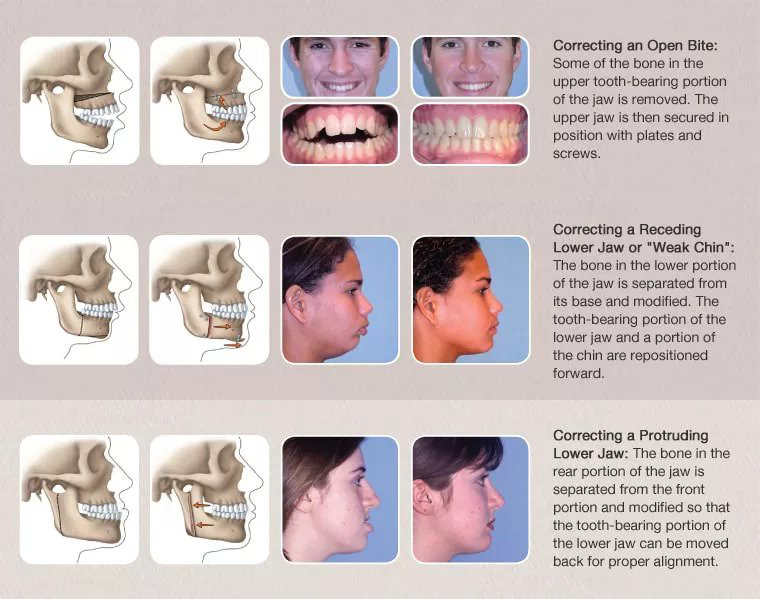Corrective jaw surgery – also called orthognathic surgery – is performed by an oral and maxillofacial surgeon (OMS) to correct a wide range of minor and major skeletal and dental irregularities, including the misalignment of jaws and teeth. Surgery can improve breathing, chewing and speaking. While the patient’s appearance may be dramatically enhanced as a result of the surgery, orthognathic surgery is performed to correct functional problems.
The following are some of the conditions that may indicate the need for corrective jaw surgery:
- Difficulty chewing or biting food
- Difficulty swallowing
- Chronic jaw or jaw joint (TMJ) pain
- Excessive wear of the teeth
- Open bite (space between the upper and lower teeth when the mouth is closed)
- Unbalanced facial appearance from the front or side
- Facial injury
- Congenital craniofacial anomalies seen at birth
- Receding lower jaw and chin
- Protruding jaw
- Inability to make the lips meet without straining
- Chronic mouth breathing
- Obstructive sleep apnea
Your orthodontist and OMS will work together to determine whether you are a candidate for orthognathic surgery. The oral and maxillofacial surgeon determines which corrective jaw surgical procedures are appropriate and performs the surgery. It is important to understand that your treatment, which will probably include orthodontics before and after surgery, is a process rather than a single event. Your OMS and orthodontist understand this is a long-term commitment for you and your family, and will try to realistically estimate the time required for your treatment.
Correction of Common Dentofacial Deformities

Article Courtesy of AAOMS, https://myoms.org.
All procedures performed at Pottstown Oral Surgery can be done under general or local anesthesia. Click here to learn more about us.